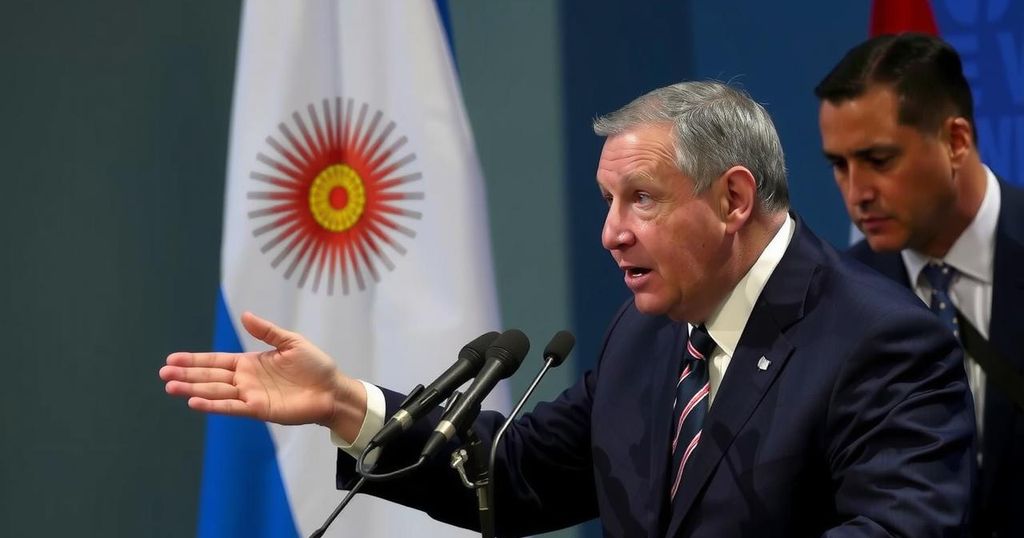Argentina’s President Dismisses Foreign Minister Following Pro-Cuba Vote

Argentina’s President Javier Milei has dismissed Foreign Minister Diana Mondino shortly after the country voted at the U.N. in favor of lifting the U.S. embargo on Cuba. Gerardo Werthein, the current ambassador to the U.S., has been appointed as her successor. This decision aligns with Milei’s pro-U.S. and pro-Israel foreign policy stance amidst criticisms from many Latin American nations regarding their relations with Israel.
In a significant diplomatic shift, Argentina’s President Javier Milei has terminated the appointment of his foreign minister, Diana Mondino, shortly after the nation cast a vote at the United Nations in favor of lifting the U.S. economic embargo on Cuba. This move comes amid tensions regarding the administration’s alignment with U.S. foreign policy. Gerardo Werthein, who currently serves as Argentina’s ambassador to the U.S., has been appointed as her successor, according to Manuel Adorni, spokesperson for President Milei, via his account on X. While specifics on the rationale for Mondino’s dismissal were not provided, the timing of the announcement—immediately following the vote—suggests a direct correlation to Argentina’s stance within an international context. On the same day, 187 nations voted collectively in support of a U.N. resolution that denounces the United States’ embargo against Cuba, with only the United States and Israel opposing the resolution. Since assuming office in December 2023, President Milei, representing a libertarian agenda, has demonstrated an orientation of Argentine foreign affairs that increasingly favors U.S. and Israeli interests. Notably, President Milei has expressed unequivocal support for Israeli Prime Minister Benjamin Netanyahu amidst the latter’s military actions in Gaza, setting Argentina apart from the prevailing sentiments in much of Latin America. Several countries in the region, including Bolivia and Colombia, have moved to sever diplomatic ties with Israel, while at least five have recalled their ambassadors from Tel Aviv.
The recent vote at the U.N. Assembly reflects a broader geopolitical context in which countries across Latin America are reassessing their diplomatic positions concerning U.S. policies. Historically, the U.S. economic embargo against Cuba has been met with criticism from various nations in the region. The endorsement of a resolution to lift the embargo indicates a collective preference for engaging with Cuba on a more equal footing, highlighting a rift between the preferences of countries like Argentina under Milei’s administration and the longstanding policy preferences of the United States. In addition, President Milei’s administration represents a marked pivot toward more conservative, pro-U.S., and pro-Israel foreign policies, which starkly contrasts with the leftist leanings of previous administrations in Argentina and the current trends among other Latin American countries regarding relations with Israel.
The dismissal of Foreign Minister Diana Mondino by President Javier Milei shortly after Argentina’s vote in favor of ending the U.S. embargo on Cuba signifies a complex interplay of domestic authority and foreign policy alignment. As Milei continues to navigate the diplomatic landscape, embracing U.S. and Israeli interests while facing regional dissent, the implications of this decision may resonate throughout Latin America, potentially reshaping Argentina’s foreign relations in the future.
Original Source: abcnews.go.com






